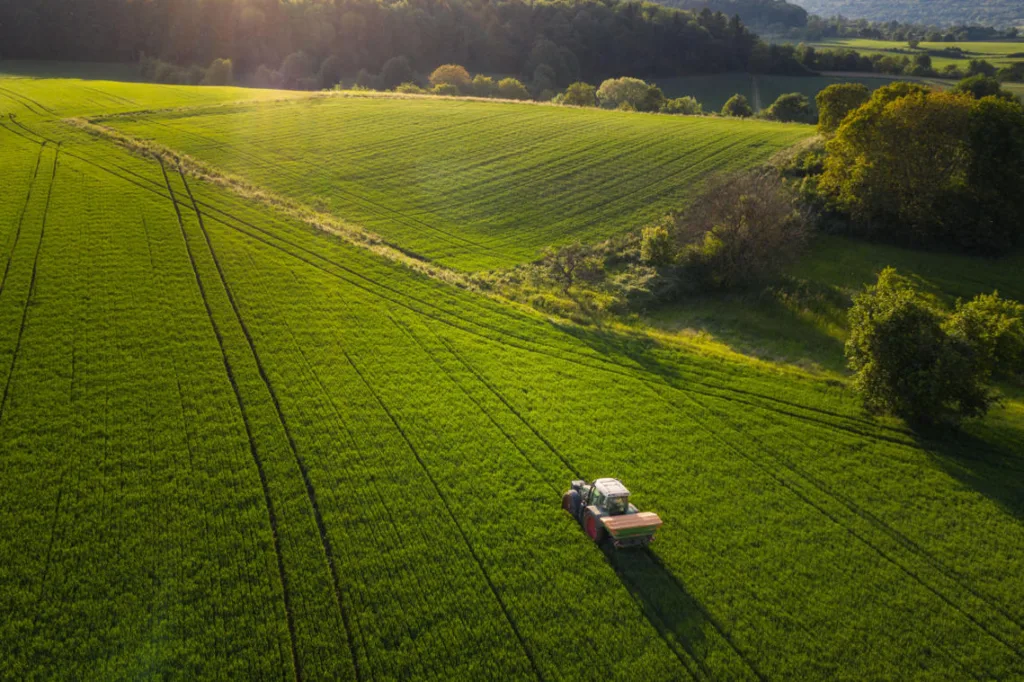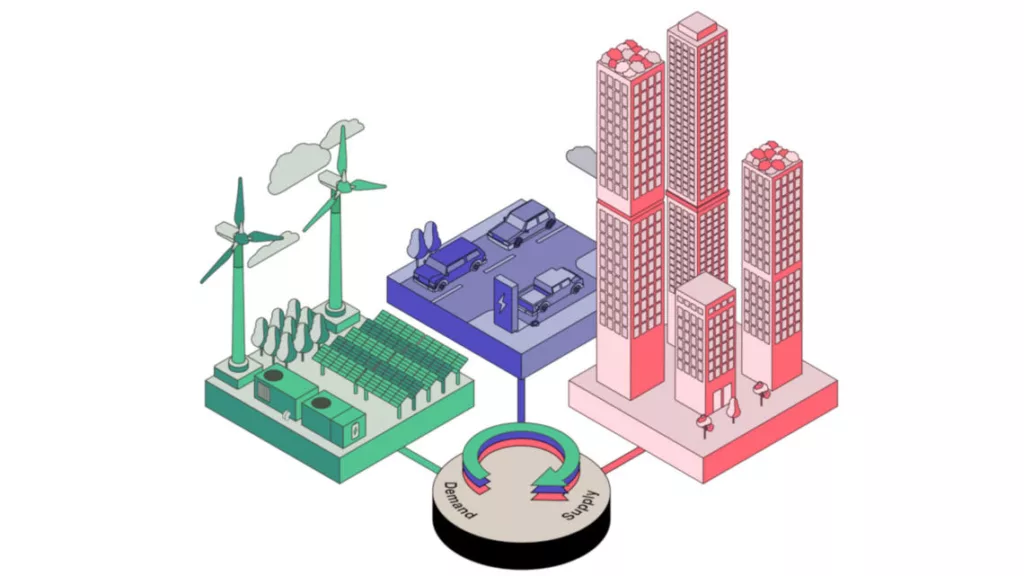Authors
WBCSD Communication
In November 2021, the world was convened in Glasgow to discuss urgent climate action during the annual UNFCCC COP26. Despite a strong focus on nature, the role of food systems was not featured prominently in the COP26 agenda. Food systems account for a third of greenhouse gas emissions and erode over USD $19.8 trillion of value each year through unaccounted impacts on people and nature. Understanding the true value of food will therefore be a necessary part of the solution and WBCSD recognizes that systems transformation will be required to tackle the three critical challenges of climate emergency, nature loss, and mounting inequality.
WBCSD’s Vision 2050 sets a shared vision of a world in which more than 9 billion people are able to live well, within planetary boundaries, by 2050. Achieving this vision will require transformation at scale, and business leaders will need to focus their actions to drive the systems transformation needed. By working on three imperatives simultaneously, Climate Action, Nature Action and Equity Action, WBCSD provides a uniquely integrated offer to help leading companies tackle the biggest sustainability challenges society faces.
Climate actions linked to food systems were not fully integrated in the negotiated texts but multiple pledges and commitments were launched at COP26 to tackle food systems and land-use issues:
- The Glasgow Leaders’ Declaration on Forests and Land Use signed by more than 140 countries promising to work collectively to halt and reverse forest loss and land degradation by 2030. The declaration includes USD $19.2 billion of public and private funding towards the protection of forests and the advancement of land tenure rights for indigenous and local communities.
- The Forest, Agriculture and Commodity Trade (FACT) Statement led by Indonesia and the UK was also launched to accelerate the development of sustainable commodity supply chains, and more than £500 million of funding was raised in support of the implementation of the FACT roadmap of actions.
- The Agricultural Innovation Mission for Climate (AIM4C) initiative launched at the UN Food Systems Summit is an initiative jointly led by the United Arab Emirates and the United States to scale investments towards climate-smart agriculture and food systems innovation over the next five years (2021-2025). AIM4C announced an early harvest of USD $4 billion of public funding pledged to support the initiative’s efforts.
- The business community in the commodity sector, including WBCSD members Olam International, Cargill, Archer Daniels Midland (ADM), Golden-Agri Resources and others have joined forces with a joint statement to identify solutions at scale to further progress on eliminating commodity-driven deforestation and reducing greenhouse gas emissions (GHG).
Business leaders have proven their dedication to protect nature, improve the transparency of their supply chains and foster equitable outcomes for all. But no one can do this alone. Trust-building and innovative collaborations will be needed to implement the commitments made at COP26 from the private sector, including greater public-private partnerships and science-based policies supporting nature-positive, equitable, and net-zero food systems that can nourish all people with healthy diets.
Accountability mechanisms will also be critical to measure the impact of business in creating food systems which reward sustainable agricultural practices and elevates agriculture as an asset for carbon capture. The draft text on Article 6 produced during COP26 could provide a foundation for robust carbon markets and support the redirection of financial flows from the global north to low-emitting countries. This framework has the potential to help finance the transition towards sustainable farming while providing an accounting mechanism for the reduction of carbon emissions within food systems.
During COP26, WBCSD together with members and partners announced several initiatives and new tools, here is a selection:
- The Banking for Impact on Climate in Agriculture (B4ICA): an initiative led by WBCSD in partnership with the United Nations Environment Program Finance Initiative (UNEP FI), the Partnership for Carbon Accounting Financials (PCAF) and Environmental Defense Fund (EDF). Rabobank, Santander, Wells Fargo, and Barclays are among top banks working together to support their food, agriculture and land use sector clients in the transition to net-zero. For more information, please contact Robert Barbe.
- WBCSD and 12 partners announced Regen10, an ambitious collective action plan to scale regenerative food production systems, worldwide, in a decade. The initiative, with farmers at its heart, will work with over 500 million farmers to apply regenerative production methods and transform agricultural systems, as well as ensure roughly USD $60 billion per year is deployed to finance the transition. By 2030, it is hoped that over 50% of the world’s food can be produced in a way that drives positive outcomes for people, for nature, and for climate. For more information, please contact Tony Siantonas.
- Developed in collaboration with 20 forest stakeholders, WBCSD’s Forest Solutions Group launched the Phase I report of its Forest Sector Net-Zero Roadmap. It offers a clear and compelling narrative on the role of the forest sector in enabling the transition to a net-zero economy through interventions across the full value chain. This report lays the groundwork for Phase II of the project to come in 2022, that will provide guidance for business in the forest sector to drive credible and science-based net-zero strategies. For more information, please contact Angela Graham-Brown.
- The “building blocks” framework was released, with the aim to break down the key concepts of nature-positive action that appear in key publications and translate them into clear steps that help a non-expert business audience to readily and simply understand what makes an action nature positive. This work will serve as the foundation for a roadmap that help companies navigate actions, tools and other resources across different value chains, and raise the level of ambition and guide business to credibly contribute to nature-positive outcomes, helping businesses to better identify and understand the implications of the Global Goal for Nature for business: net positive by 2030 and full recovery by 2050. For more information, please contact Nadine McCormick.
- The WBCSD “Business Manifesto for Climate Recovery is a call for the development of a new Corporate Determined Contributions (CDCs) mechanism to capture private sector progress in the global climate recovery. is the first time that the world’s most sustainable, ambitious businesses have used their collective voice to outline what is required to accelerate the global climate recovery. The Manifesto consists of twelve action priorities framed around the imperatives to reduce, remove and report GHG emissions. Each action priority has associated policy requirements which are global in nature and applicable to policymakers in multilateral systems, and, where relevant, to national policymakers.
Next year, a greater focus will most likely be given on food systems during COP27 in Egypt. WBCSD will be advocating for a “Food day” as part of the official COP27 program to ensure that the private sector and other key stakeholders can come together and continue to elevate the need for food systems transformation on the global stage.
In 2022, WBCSD will also be launching a new project to develop a climate reference scenario approach for food, agriculture and forestry companies, leveraging food systems transformation, forest solutions, climate-related financial disclosure and scenario experience. This project supports the implementation of the Task Force on Climate-related Financial Disclosure (TCFD) and the COP26 Private Finance Agenda actions to promote scenario analysis through the development of sector-specific insights and guidance. The initiative will build awareness and understanding of climate-related risks, opportunities, sector pathways and transition plans across supply chains to better inform business and financial decision-making within the food, agriculture, and forest industries.
“We have really moved into actions and demonstration of delivery of progress.” – Diane Holdorf, Executive Vice President at WBCSD. Hear more about her key takeaways at COP26 in this short video.
WBCSD news articles and insights may be republished in accordance with the Creative Commons Attribution-NonCommercial-NoDerivatives 4.0 International Public License, and in accordance with our Privacy Policy. All Content must be featured with due credits.
Related
Content

The future of food – How Kraft Heinz is working toward and contributing to a more sustainable food system
17 October, 2023

The fast lane to low carbon with integrated approaches
21 July, 2023

Agrifood coalition calls on EU to be bolder in tackling “worrying” soil health
5 July, 2023
